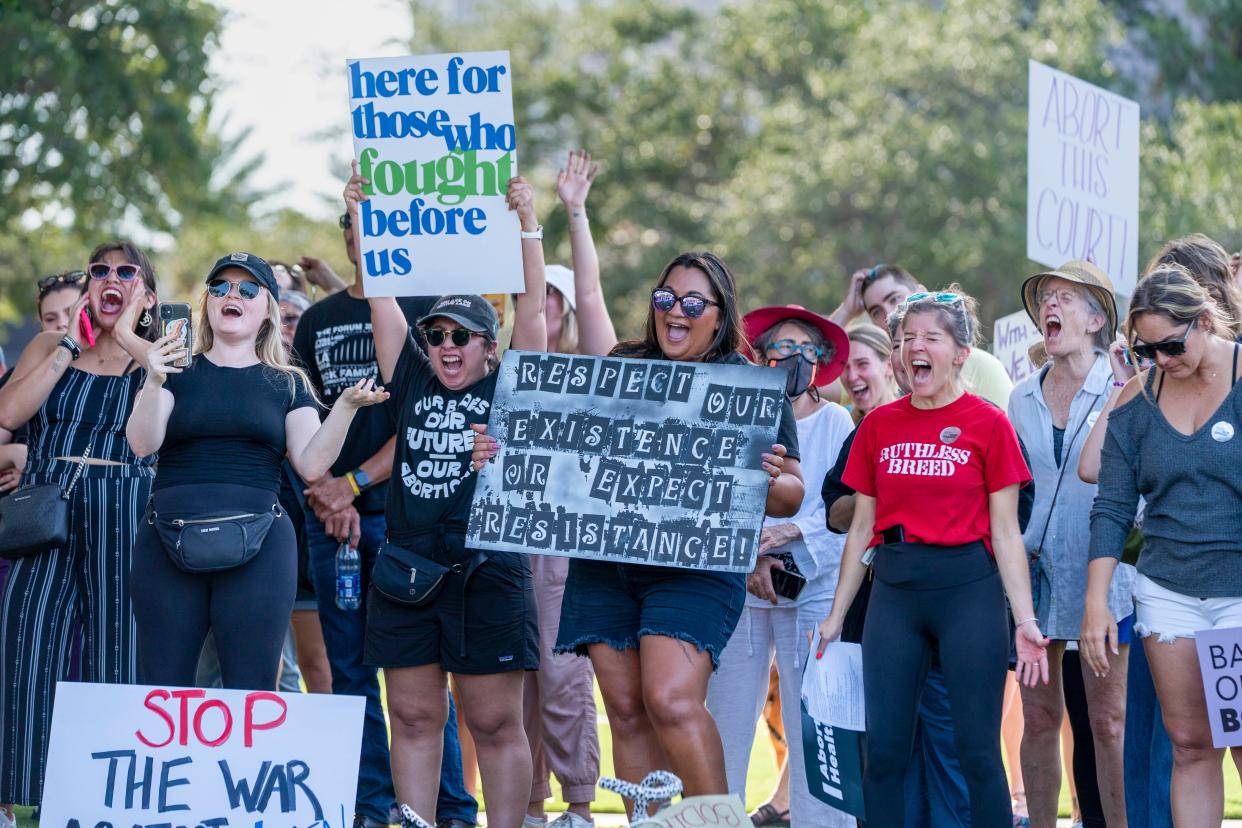Overturning Roe v. Wade puts new pressure on Florida's social services

Is Florida ready for the post-Roe experience? If the state's health and social services network is any indication, the answer is a definite "no."
Child welfare and women's health programs have fallen short of the needs of a growing and diverse state. What makes anyone think it'll be ready to handle a wave of forced births?
The question too few ask is, will Florida's hodgepodge of government agencies and nonprofits that provide health and social services for pregnant women, newborn babies and youngsters put up for adoption and/or foster care be up to the challenge that will come as more women are forced to carry fetuses to term? The answer is discouraging, although the assumption is that these services are somehow available.
"Our child-welfare services has been in crisis for decades, and it's still there," Karen Woodall, a longtime advocate and director of the Tallahassee-based Florida Center for Fiscal and Economic Policy told the Palm Beach Post Editorial Board. "The reality is, the reality doesn't match the rhetoric. We dabble around the edges. It's nothing new."
According to a recent Associated Press analysis, states with the most restrictive laws generally provide less support to parents and children, which typically leads to poverty and poor health outcomes.
So, how bad is it in Florida?
The Annie E. Casey Foundation's 2021 Kids Count Data Book ranks Florida 35th of the 50 states in overall child well-being, the composite ranking of economic well-being, education, health and family and community data. Florida did worse in the economic well-being category, ranking 42nd.
Another indication: In 2020, USA Today reporters produced an investigation of the state's foster care system entitled, "Florida took thousands of kids from families, then failed to keep them safe." The series described a system that buckled under rising caseloads, in which caseworkers lied and omitted information from their reports and in which children got hurt.
The probe produced some changes, but with more than 79,000 women undergoing abortions in 2021, according to Agency for Health Care Administration data, one can only imagine what may occur with the possibility of more children ending up in the state's care. While it's unclear how the new abortion restrictions will impact Florida's health and social services, there's a consensus that more resources will be needed if many of what were to be abortions become babies of unwanted pregnancies.
For years, abortion opponents have called for greater rights of the unborn, while offering lip service or outright opposition to initiatives that would help vulnerable mothers and their children. The child tax credit, Medicaid, Obamacare are just the prominent federal government programs to draw heated opposition from conservative Republicans and many right-to-lifers. Life after Roe, however, is putting them in a corner.
It's ironic that Florida Sen. Rick Scott, who once considered expanding Medicaid here as governor before backpedaling, is now using his position as head of the Senate Republican campaign committee to urge Republicans to "do everything in our power to meet the needs of struggling women and their families so they can choose life."
Sen. Marco Rubio is chiming in, too, announcing an idea on Twitter that would "support mothers and their babies so that every child has a real opportunity to pursue the promise of America." The proposal includes a limited expansion of payments from the child tax credit and would allow for paid family leave, if those participants use their Social Security benefits and delay retirement. Such is life in the post-Roe world.
It's now up to the states to set the rules regarding abortions. Several states have already severely restricted abortions. Florida is one of six states where the state courts have become the new battleground to either preserve or eliminate the procedure.
Women who assumed the medical procedure would always be available to them face a world of risks many thought were long gone. The pro-life community would do well to better understand and push for additional resources to health care and welfare services they are so quick to presume are readily available.
Improved social services are no substitute for what had been a fundamental right guaranteed under Roe v. Wade and subsequent Supreme Court rulings. But abortion restrictions being reinstated, boosting social services can't be slighted.
— This editorial represents the opinion of the Palm Beach Post Editorial Board, which is comprised of its executive editor, editorial page editor and editorial writer.
Join the conversation
Share your opinions by sending a letter to the editor (up to 200 words) to letters@gainesville.com. Letters must include the writer's full name and city of residence. Additional guidelines for submitting letters and longer guest columns can be found at bit.ly/sunopinionguidelines.
Journalism matters. Your support matters.
Get a digital subscription to the Gainesville Sun. Includes must-see content on Gainesville.com and Gatorsports.com, breaking news and updates on all your devices, and access to the eEdition. Visit www.gainesville.com/subscribenow to sign up.
This article originally appeared on Palm Beach Post: Editorial: Overturning Roe puts focus on social services

